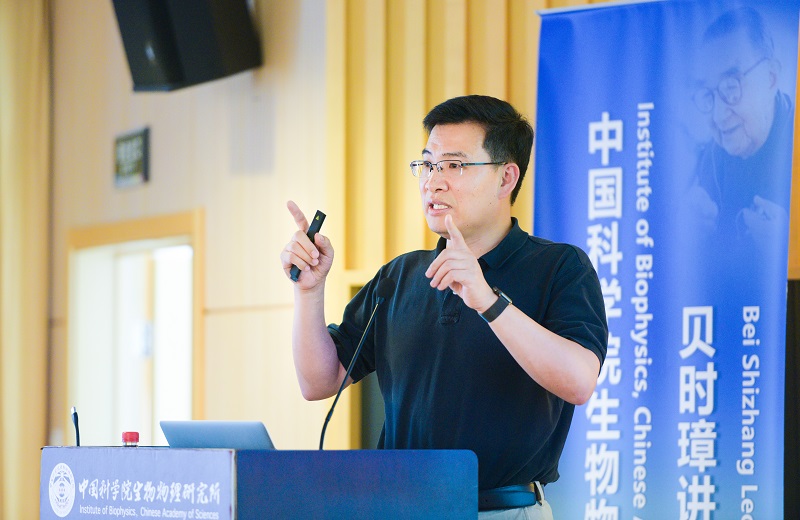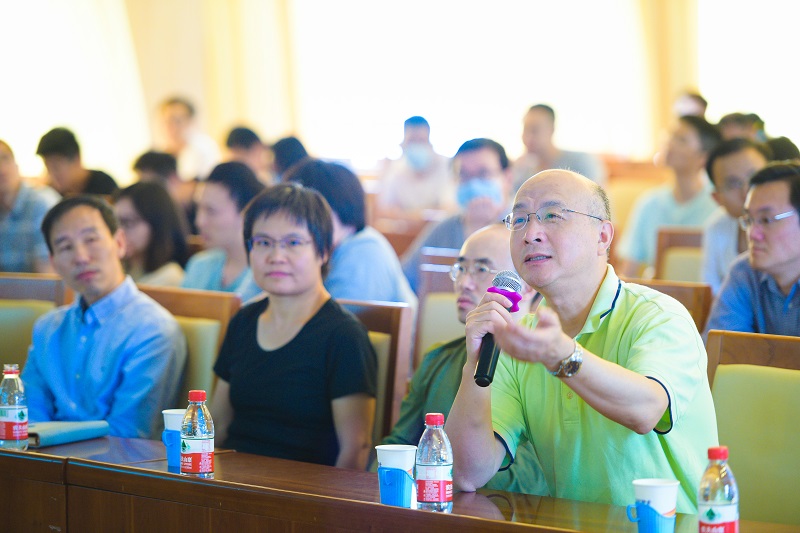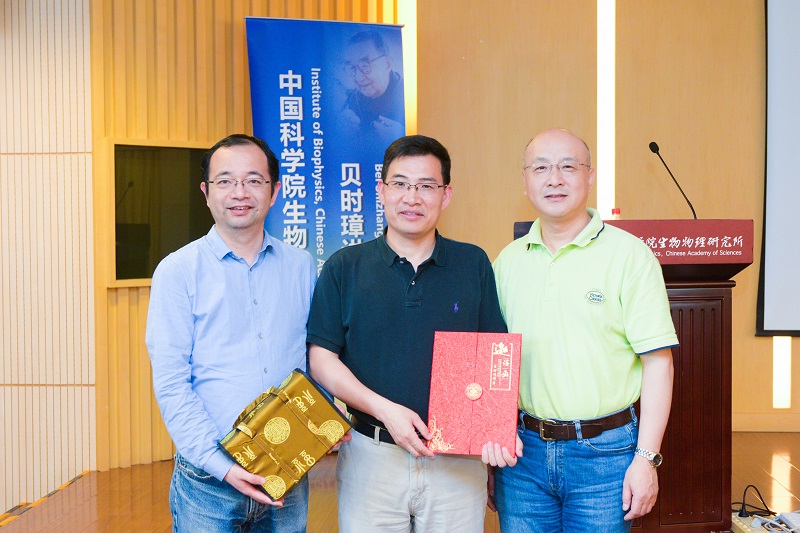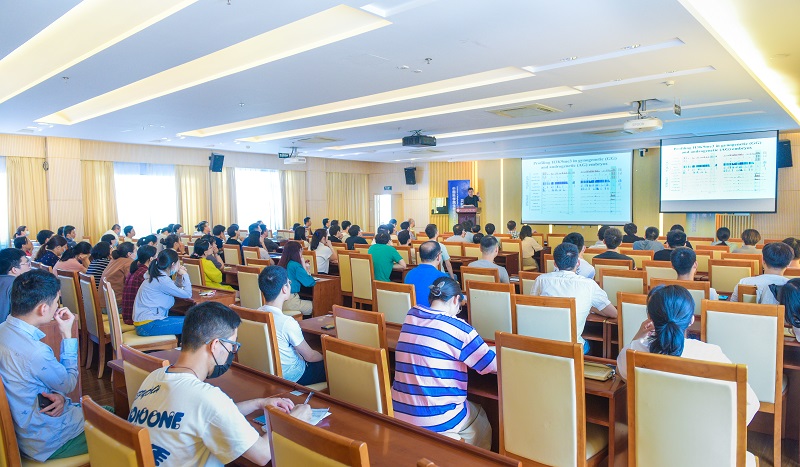Professor Shaorong Gao from Tongji University visited IBP and delivered a Bei Shizhang Lecture
On May 19, 2021, Prof. Shaorong Gao, from the School of Life Sciences and Technology, Tongji University, was invited by the Institute of Biophysics (IBP), Chinese Academy of Sciences (CAS) to deliver a Bei Shizhang Lecture entitled "Epigenetic regulation of early embryo development and somatic cell reprogramming". The lecture was held by Prof. Bing Zhu, Deputy Director of IBP, CAS.
Prof. Shaorong Gao has been engaged in understanding the epigenetic regulation mechanism in early embryo development and somatic reprogramming for a long time. His team is one of the two teams that proved the full pluripotency of iPS cells and this achievement has been selected by Times as one of the top ten medical breakthroughs worldwide in 2009. Prof. Shaorong Gao has won many important awards, including the Outstanding Youth Award by NSFC, the Outstanding Youth Award in Basic Science by Zhou, Guang-Zhao Foundation, the Tan Jiazhen Life Science Innovation Award and the Outstanding Achievement Award of the Chinese Society for Cell Biology.
In this report, Prof. Shaorong Gao introduced their interesting findings in early embryo development and somatic cell reprogramming. Firstly, they traced the establishment and regulation of histone modification H3K4me3、H3K27me3 and H3K9me3 from germ cells to early embryo by establishing low-cell histone modification profiling method. Then he introduced that mRNA m6A is very important in early embryo development, so his team further identified the establishment and regulation mechanism of mRNA m6A in this process; Dr. Gao's group also found many epigenetic information inherited from somatic cell nuclei may affect the efficiency of somatic cell nuclear transfer(SCNT), including histone H3K9me3 modification, DNA remethylation of donor nuclear and abnormal H3K9ac. Based on these observations, they identified several genes that can break these epigenetic barriers, such as Dux and KDM4B. In addition, his group also observed that comparing to iPS, in the nuclear transfer stem cells telomeres undergo extensive lengthening, and they further demonstrated the mechanism mediated this process.
Prof. Shaorong Gao 's lecture is impressive and rich in content. After the lecture, researchers and students asked their interested questions, and Prof. Shaorong Gao shared his own views with them.

Prof. Shaorong Gao was giving the lecture

Researchers exchanged ideas with Prof. Shaorong Gao

Prof Shaorong Gao, Prof. Ruiming Xu and Prof. Bing Zhu

The audience

